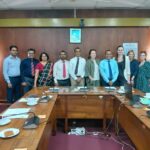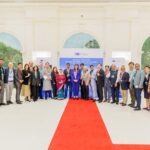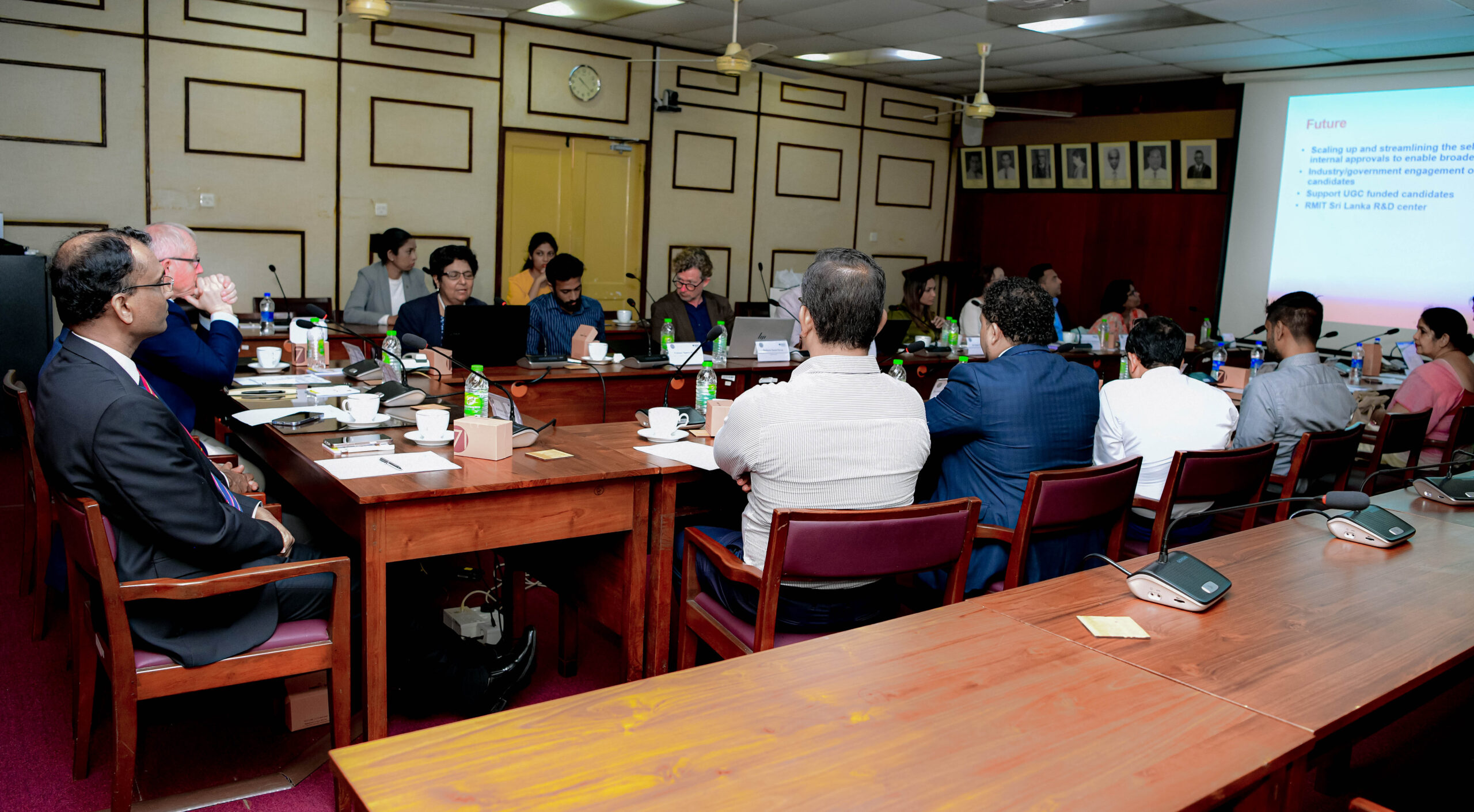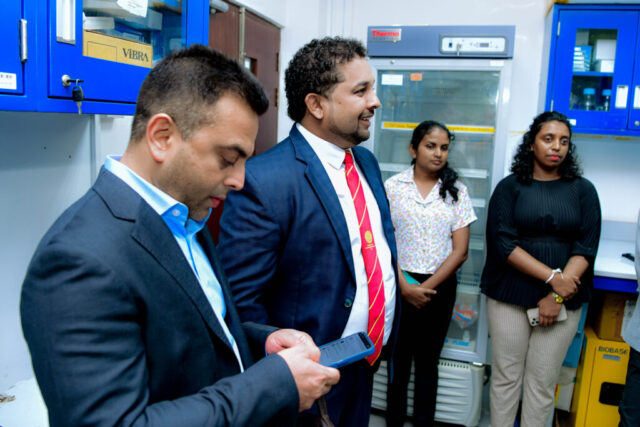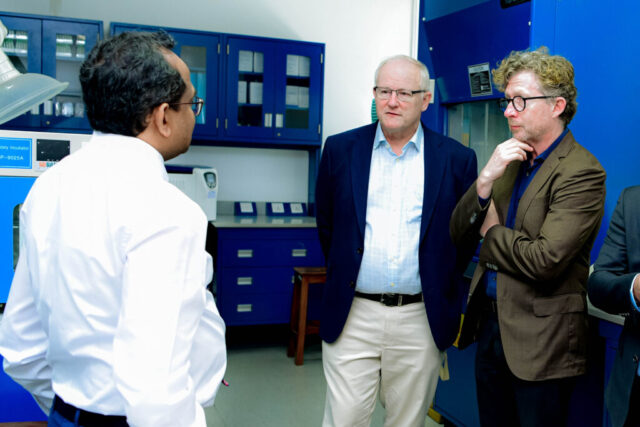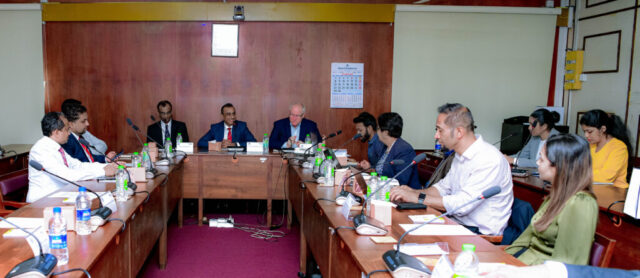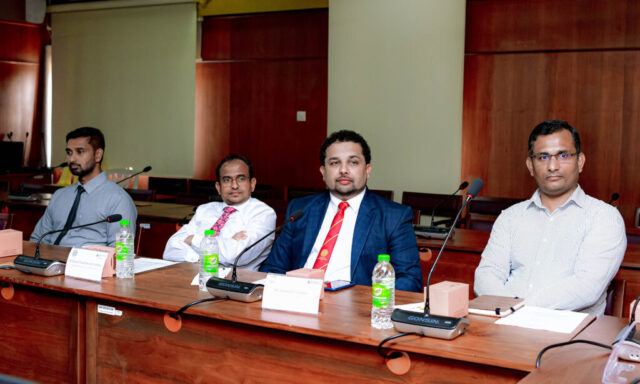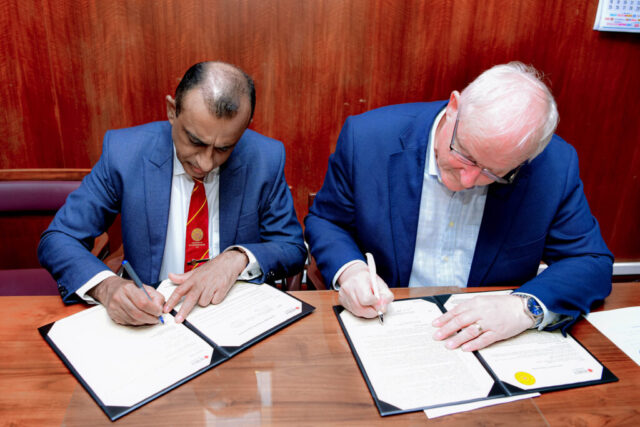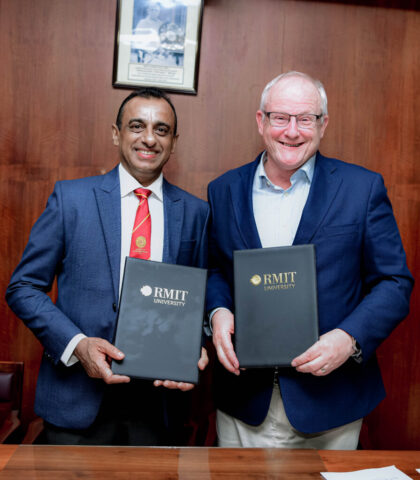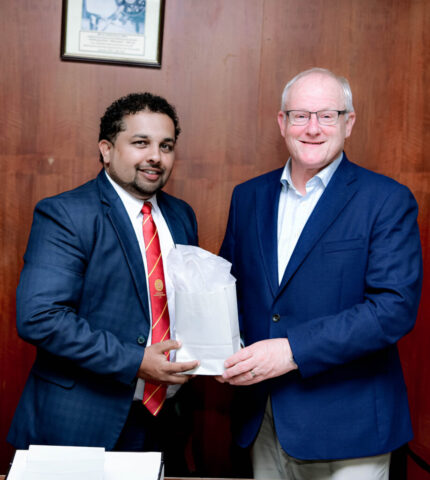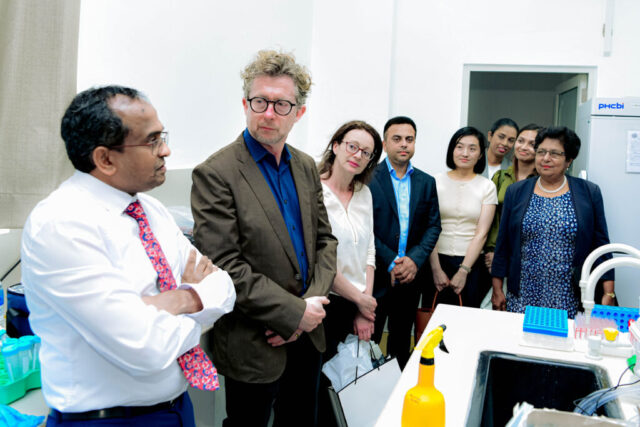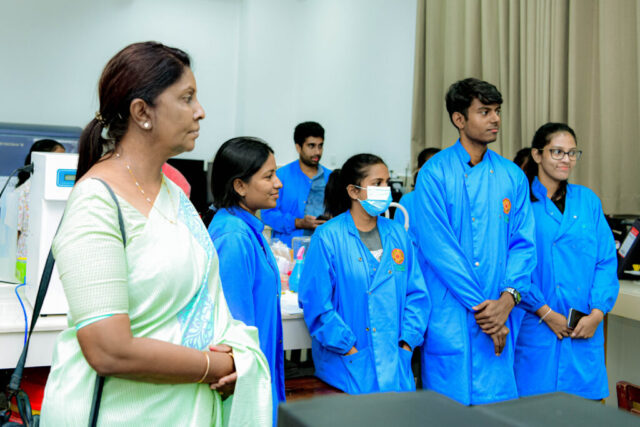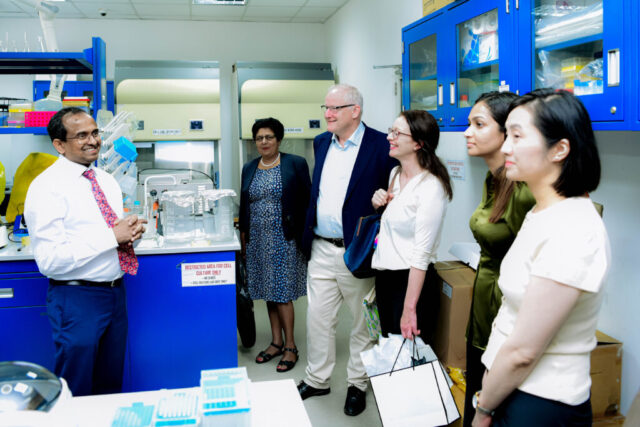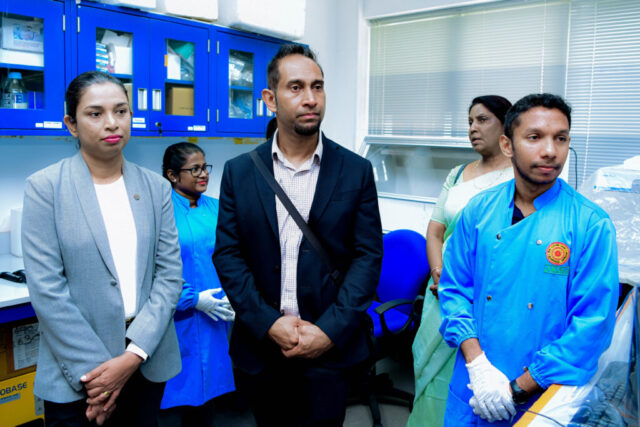On October 1st, the University of Sri Jayewardenepura (SJP) had the honor of welcoming a distinguished delegation from RMIT University, Australia. The visit marked a significant milestone in the ongoing academic collaboration between the two institutions, particularly through the RMIT-SJP Cotutelle PhD Program. The visit began with a warm reception extended to the RMIT delegation by Dr. Rumesh Liyanage, the SJP Coordinator for the Cotutelle Program. Delegates were then taken on a guided tour of the laboratories at the Faculty of Medical Sciences, providing valuable insights into the university’s state-of-the-art research facilities, ongoing projects, and scientific infrastructure. This tour highlighted SJP’s capabilities in biomedical research, diagnostics, and interdisciplinary medical science, reinforcing the potential for expanded collaboration.
Following the tour, the participants assembled in the Old Board Room for a high-level meeting attended by Senior Professor Pathmalal M. Manage, Vice Chancellor of SJP, along with the Deans of all Faculties, Faculty Coordinators, and foreign delegates. The session opened with a round of self-introductions, fostering a welcoming environment conducive to networking and mutual understanding. Dr. Rumesh Liyanage then delivered an in-depth briefing on the RMIT-SJP Cotutelle PhD Program, outlining the progress achieved to date, ongoing research collaborations, and the positive impact of the program on postgraduate research capacity building at SJP. His presentation highlighted the shared academic goals of both institutions and the mutual benefits derived from the partnership.
Professor Sujeeva Setunge, Associate Deputy Vice Chancellor for Research and Innovation at RMIT, followed with a presentation on the current status and strategic vision for the Cotutelle program. She emphasized the importance of interdisciplinary collaboration and outlined new avenues for research engagement, joint supervision, and knowledge transfer between the institutions. The session continued with formal addresses by Senior Professor Pathmalal M. Manage, Vice Chancellor of the University of Sri Jayewardenepura, and Professor Calum Drummond, Deputy Vice Chancellor for Research & Innovation and Vice President of RMIT University. Both dignitaries emphasized the importance of international collaboration in higher education and research, reaffirming their commitment to strengthening the partnership and expanding its scope to include emerging disciplines and societal impact initiatives.
Further contributions came from Associate Professor Natalie Borg of RMIT, who spoke on potential collaborative opportunities in health and biomedical sciences. Her presentation underscored RMIT’s research strengths in molecular biology, public health, and translational medicine, which align closely with SJP’s academic priorities. Additionally, faculty deans from SJP representing areas such as medical sciences, applied sciences, engineering, and technology delivered briefings outlining their faculties’ research priorities, capacities, and visions for international collaboration. These inputs served to map out specific areas for joint projects, staff and student exchanges, and shared research infrastructure.
An open discussion forum, moderated by Professor Rasika Perera, Dean of the Faculty of Graduate Studies at SJP, provided a platform for participants to ask questions, share ideas, and engage in strategic planning for the next phase of the RMIT-SJP partnership. The interactive session yielded several concrete proposals, including expanding Cotutelle supervision to additional disciplines, increasing funding mechanisms, and hosting collaborative workshops and symposia.
The formal proceedings concluded with remarks from Dr. Rumesh Liyanage and Professor Sujeeva Setunge, both expressing their appreciation for the productive engagements and the shared commitment to academic excellence. They emphasized the significance of fostering deeper ties between the institutions for mutual growth and global impact. The visit concluded with a networking lunch, offering a relaxed environment for delegates, faculty members, and administrative leaders to continue their conversations, build rapport, and explore potential collaboration opportunities in an informal setting. The delegation’s visit ended on a positive and forward-looking note, with both institutions inspired to take their partnership to new heights through sustained collaboration, innovation, and shared academic values.






